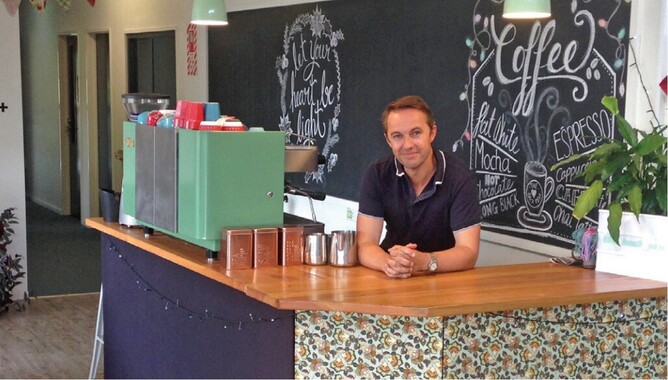Pastor Philip Renner, Chapel Hill Community Church
When I asked Philip Renner the opening question – What is your church doing to connect with community people? – I think I expected him to talk about the Chapel Hill Kindergarten that his church created in 2003.
It’s a substantial kindy, with a Christian-based curriculum delivered by mostly Christian teachers, and has been filled with community kids since the year it opened. Philip does mention the kindy, but not in the flagship way you’d expect.
“We’re in the middle of a transition. For a long time, we’ve seen Christianity as a product that we can package. When people talk about our kindergarten, they see it as something that delivers Christian-based content to non-churched community people.
“But mostly, that’s a draw for believers. Non-churched people aren’t coming for Jesus. They want their kids to be good members of society, so they take what they want from our Christian product and leave the rest. Fair enough.
“We still have Kindy, Play Group, Mainly Music…and we’ll continue to run these programmes. But rarely does any of it transition to Kingdom transformations.”
The “we’re in transition” bit seems key. What are the Chapel Hill believers leaving behind and what are they heading into?
“There are a number of reasons why many Christian ministries don’t lead community people into knowing Jesus. One of them is that we, the followers of Christ, share the same fundamental worldview of the non-believers: the primacy of the individual.
“For believers and non-believers alike, life is about self-fulfilment; it’s about pursuing things that add value to my life. Houses. Careers. The education of our children. Leisure. Pleasure. Even ‘purposeful activity’ is a life-enhancing thing.
“Now think about the gathered church. Often, it is individuals lightly connecting with individuals, most hoping to find church rewarding in some way. And that’s the problem: we see church as a building that houses life-enhancing products. Naturally, we assess the value of church based on these unspoken questions: Is this helping me? Do I have a sound-bite that I can take away? Am I ‘feeling’ it?
“We assess church in this way because our prevailing view is self-help and self-determination. Not only is this worldview damaging for believers, it leads to the type of ‘community’ where the unchurched can’t really be expected to find Christ. It isn’t worth coming for.
“I suspect that in conscious and unconscious ways, we’re trying to make ourselves like the world we’re in. Israel did that under Samuel. ‘We want a king over us. Then we will be like all the other nations…’ That never works.”
If ‘Church as Product’ and ‘self-determination’ is what needs to be left behind, where are the believers of Chapel Hill trying to head?
“At Chapel Hill, we’re trying to challenge these worldviews and the resulting behaviours. We have to because those worldviews are the drivers behind our impoverished experience of community. If we can create and enjoy genuine community, we’ll have a lived-out reality into which we can invite the unchurched people we already rub shoulders with.”
How do you get these deep ideas into the hearts and minds of God’s culturally conditioned people?
“Creating a new culture is a slow dripping tap. It’s small things done often enough to ‘saturate the ground’ with new ideas and new behaviours. For example, we started with something that families already do: Friday night dinner and a movie.
“We began inviting our people to bring food to share and to enjoy a movie with the gathered church. It’s what they’d do anyway, but on a bigger scale. The point of this small move is to create a gathering where there is no agenda other than spending time with each other. If you can do that, you have a chance to know and enjoy someone in a way you weren’t doing on Sunday.
“We also invite our people to meet up and practically serve one another. When we decorated the church for Christmas, we invited everyone to join in. When the church is used to doing life and serving others, it’s naturally engaging with others, and naturally welcoming.
“Also, I am deeply convinced that the account of the early church pooling their possessions in Acts 2 and 4 describes God’s fundamental priorities for his community. When MY STUFF becomes OUR STUFF among believers, a profound freedom is experienced. You learn that the community has your back and that God has your back. That kind of love is real freedom, and we need it.
“Like non-churched people, we’re too anxious of losing our place in this world. Our priority becomes our children’s education, in the hope they will move up a couple more rungs of the middle-class ladder. We live with subconscious fears about careers and house prices and whether or not we are advancing. It’s all self-referencing.
“I’m convinced ‘community’ will protect us from these fears.”
Philip believes that trusting God is another key.
“God says ‘With me behind you, you can afford to be generous. You don’t have to be afraid that you won’t have enough, or that someone will get ahead of you if you give things away.’ We rate parenting on giving our kids better stuff. What about ‘I just want my kids to be faithful’? Generosity and trust is forcing us to ask harder questions. Questions like ‘Lord, where do you want me to live? Where do you want my kids to go to school? Can we trust God enough to hand these things over to Him?’
The difficulty for us is we’re trying to embrace something we can hardly describe. We’re struggling to describe this community because we’ve rarely seen it or experienced it. That’s where I think we have much to learn from Māori: lessons from the marae and from their experience of Whanau.”
Philip recounts an experience of how his sense of the community had a profound influence on a seemingly individual decision. “When you think about buying a car, it’s all based on self-referencing factors. What do I want? What suits me? What meets my needs? When my church generously offered to buy my family a vehicle, that all changed. Because of their generosity, I was suddenly community-conscious when it came to car choices. Buying became a community-conscious activity.
“Sure, I asked ‘What does my family need?’ But I also asked ‘What vehicle will benefit the church? Or those who might want to use it? What vehicle will be less of a burden to the community?’ Rather than limiting my options, I found this more difficult process to be deeply enriching and liberating.”
Philip cites another question that the people of Chapel Hill have to answer: How do we take our slow-growing community revolution into the world around us?
“One small thing we did was to invite the wider community around our church to join us in a fundraising Spring Market. The fundraiser was for our 24/7 Youth work, a ministry where Chapel Hill partners with a local school to help young people in their struggles.
“Community people understood the need straight away and showed up in large numbers. Yes, they were there to buy or sell, but they also knew they were contributing to a bigger community cause and that changed the environment. For one guy it was his first time ever on a church premises – a church member who knew him was shocked to see him! And for that one Saturday, we felt in genuine community with our neighbours, and we could tell they felt the same way.
“Ultimately, we’re asking this question: What kind of community is needed in Rototuna? What would be a prophetic sign against the prevailing consumer ideology? Whatever God is calling us to, it’ll be outside our comfort zone. It has to be.“




